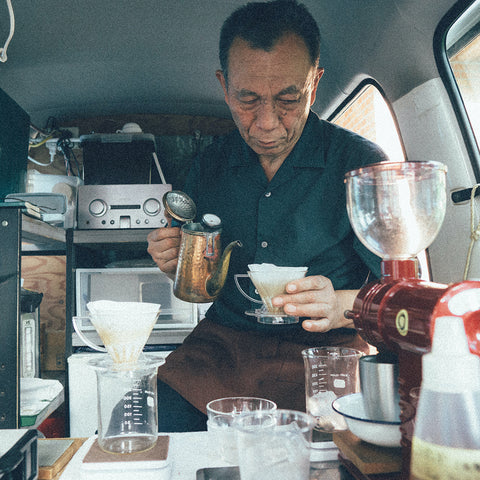Like many Asian countries, Japan was also once a predominantly tea-drinking country. But over the years, changing habits of Japanese people has led to a significant rise in their coffee industry.
It was reported that in 2021, Japan consumed 433 million tons of coffee compared to the 100 thousand tons of tea.
While the nation gets most of its coffee through imports, it does produce some coffee. Let’s take a look at the basics of coffee in Japan.
History
Back in the 17th century, coffee was said to have been brought into Japan by Dutch and Portuguese traders.
The first coffee shop opened in Japan was called Kahiichakan, which operated between 1888 and 1893. Later, the efforts of Tadao Ueshima (who is now referred to as the Father of Coffee in Japan) proved to be crucial to the resurrection of Japan’s coffee industry. He produced canned coffee that could be consumed on-the-go.
While coffee imports were banned for a time period during World War II, the ban was lifted subsequently.

As western influence started to seep into cultures across the east, Japan too wasn’t immune to it. That was primarily the reason for why many Japanese natives turned to coffee consumption.
In 1980, Tadao Ueshima established the All Japan Coffee Association. Even the first coffee chain was founded that year.
And so, it was the 20th century when coffee culture began to take form in Japan.
The distinction between Japan’s tea and coffee cultures became more and more apparent with the inception of Jazz cafes and coffee shops. These weren’t only a hub of social activity but also a gathering place for youth interested in furthering their political agenda.
Trends
-
An interesting serving custom in Japan is that the coffee cup is placed in such a way on the table that the cup handle is to the left of the customer and the spoon is placed in front of the cup.
The reason for this, some say, is that it allows for convenience. When served coffee, the customer would typically want to add sugar to it. Having the handle on the left allows them to hold the cup with their left hand and stir the sugar into the coffee with their right.
-
A lot of the coffee terminology used in Japan is directly taken from the English word, i.e. Japanese words for a particular term aren’t commonly used. For example, black coffee is “burakku koohii”
-
Many coffee shops in Japan experiment with brewing methods and the beverage itself.
The Japanese-style iced drip coffee is a method wherein hot coffee decoction is extracted onto a glass of ice to create a cold filter coffee. This method is said to make the coffee acidity more bright.
Present Day Coffee Culture
The present day coffee culture in Japan is defined by the coexistence of western coffee chains as well as small independent coffee shops in Japan.
Lots of people prefer take-out coffee, especially ones from convenience stores that tend to be cheaper and quickly accessible. Realising this trend in coffee consumption, coffee shops have pivoted to establishing coffee stands where one can quickly grab a coffee on the way to work or college.

Since the region of Okinawa lies on the bean belt, it has the ideal environment to grow coffee. There are a couple of dozen coffee farms on Okinawa island. You’ll find notes of black tea with an overall clean flavour profile in these coffees.
Considering that their coffee production is not yet significant in volume to bring Japan on a global playing field, there is still loads of potential to enhance coffee cultivation.
People in Japan also drink a lot of black coffee. We’ve seen how in South Korea too, such a trend is common.
Additionally, you’ll notice that many coffee shops in Japan prefer the siphon method of brewing. This is because they believe coffee should be meticulously brewed using premium-quality beans so that the brew in itself is rich in flavour.
As of 2023, Japan ranks 4th in the world for most revenue generated from coffee, preceded only by the US, Brazil, and Germany. That alone tells you just how important coffee is to the economy of Japan.

